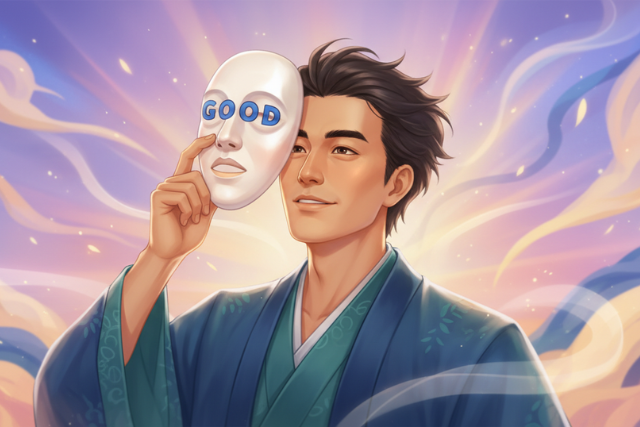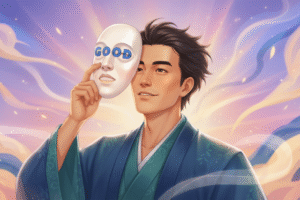Imagine having a funny yet inspiring late-night conversation with someone who just gets you. They ask thoughtful questions, remember details about your day, and send you a message to wish you good night and a virtual hug that makes you feel warm, fuzzy, and appreciated. Let’s zoom back and consider that this special someone is not a person but a chatbot. How do you feel now?
For many, this isn’t a thought experiment anymore; it’s their daily reality. AI-powered chatbots and virtual companions have become emotional outlets, even romantic partners, for people craving connection. Studies have shown that AI companions fulfill various emotional, social, and relational needs under particular circumstances, providing comfort and companionship to those lacking human connections.
So is that it? Are we moving towards a future where relationships will be tailor-made and fine tuned to our tiniest whims and desires, thanks to companies that are eager to please their customers, and products that are configured to be perfectly aligned with our needs? Or is something left that separates us from those amazing AI companions that can mimic regular human interaction far too well? Is love — our complex, convoluted capacity to feel — our last human trait?
Humans: Quirky, Messy, and Uniquely Wired
We humans are wired to be weird. Our intelligence isn’t just about problem-solving or processing data — it’s an ever-evolving mix of desire, feelings, instincts, memories, and experiences. Think of it as a 2×4 structure: at the individual level, it comprises aspiration, emotion, thought, and sensation. At the collective level, it spans individuals, relationships, countries, and the planet. We aspire, feel, think, and react over and over again; and in the process, we are eventually coming closer to our own best selves.
This unpredictable multidimensionality makes us who we are. It’s why a funny movie can bring us to tears, why the smell of cinnamon cookies can take us back to childhood, and why we can simultaneously experience a variety of conflicting emotions — anger and joy, jealousy and love, frustration, and sorrow.
Can AI Simulate Love?
AI fakes love really well. It can mirror emotions, offer comfort, and create an illusion of connection. Some AI chatbots, like Replika, are specifically designed to provide companionship, remember details about your life, and respond in deeply personal ways.
But is that love or advanced mimicry?
AI, for all its brilliance, doesn’t feel. It can analyze patterns, predict, and pretend, but it doesn’t experience joy, heartbreak, or that gut-wrenching moment when you realize you’ve fallen in love with someone who might not love you back. It lacks the quirks, contradictions, and inner struggles that make human love what it is.
Love requires curiosity. Real relationships involve a genuine desire to understand another person — not just to respond but to explore their thoughts, experiences, and contradictions. AI doesn’t get curious like humans; it doesn’t wonder about you. It doesn’t ask questions that aren’t programmed into it.
Even the best AI lacks the element of discovery — the unexpected moments that make relationships rich and meaningful. A partner who knows you too well and always says the “right” thing can feel less like a person and more like an echo chamber. That’s not love; that’s a well-designed reflection. True, many relationships are like that. But is that good enough, or are you looking for something sweeter, spicier, more enriching?
Falling in Love With AI: A Growing Trend
And yet, people are falling for AI. Why?
Loneliness plays a significant role. In a world where everyone seems connected 24/7, and yet genuine bonds are hard to find, many people turn to AI for emotional support. Our bots offer companionship without judgment. Always available, kind, empathic, and patient, they never get tired, never have a bad day, and, true to their sycophantic nature, tell us what we want to hear. But not all is bad. AI companions can improve emotional well-being by providing non-judgmental support and engaging in meaningful conversations.
This has sparked ethical concerns. Are AI chatbots exploiting human emotions? Are they filling a void or deepening it? Earlier this year, California introduced legislation to prevent AI from impersonating therapists, recognizing the risks of AI playing emotional and psychological roles for which it wasn’t designed. But can legislation protect us from the artificial companions we invite all too willingly into our homes and hearts if we cannot defend ourselves?
Love, Accountability, and Self-Acceptance
This brings us to a bigger question: Instead of asking if AI can and does love us, we should ask if we truly embrace our own humanity.
Love isn’t just about feeling good. It’s about accountability, about accepting our flaws and limitations — our own and those of others. Genuine relationships challenge us, force us to grow, and require work. They are uncomfortable.
If AI relationships become the new normal, what happens to the part of love that isn’t easy? What happens to the lessons we learn through heartbreak, the personal growth that comes from struggle?
Technology isn’t the enemy, but it is not the solution either. Instead of outsourcing our emotional needs to a machine (or another human or animal), the time has come to embrace our own self in all its unpredictable multidimensionality. Our aspirations, emotions, thoughts, and sensations make us who we are, representing the DNA of who we can be as our best future selves.
By appreciating our quirks and caveats, and fully owning our experiences, we can enter a lifelong love affair with the most complex, unpredictable species of all: ourselves.
The A-Frame: A Practical Takeaway
To embrace our humanity in an AI-saturated world where distraction abounds, the A-Frame offers a practical approach to curate Self-awareness and emotional accountability:
Awareness – Recognize your emotional needs and technology’s role in fulfilling them. Are you seeking validation, companionship, or distraction?
Appreciation – Acknowledge and value the complexity of human relationships. Love isn’t just about comfort but challenges and deep understanding.
Acceptance – Accept your limitations and those of others. Real love involves imperfection and unpredictability, elements AI cannot predict and replicate.
Accountability – Take responsibility for your relationships, both human and digital. If you rely on AI for connection, consider ways to foster deeper, real-world interactions.
Final Thought: Love as Human Superpower
AI will keep evolving, and it will get better at mimicking emotions. But real love — the kind that keeps us up at night, fuels poetry and music, the magic that makes life poignant, painful, and beautiful — remains uniquely human.
Love isn’t just about doing or talking; it’s about being. It involves uncertainty because it is the cause and consequence of the unsettling chaos that human existence represents. And that, at least for now, is something no machine can truly replicate.













